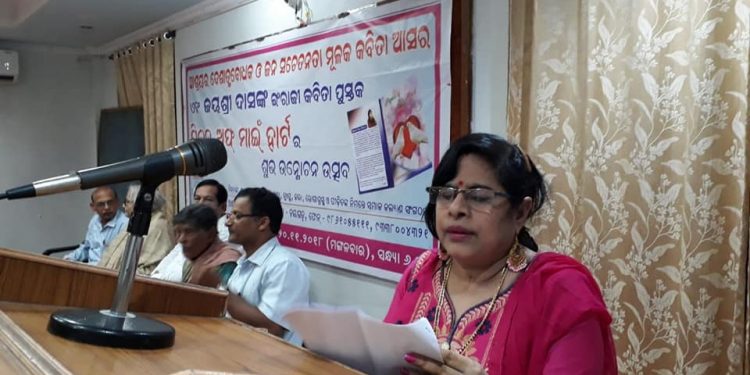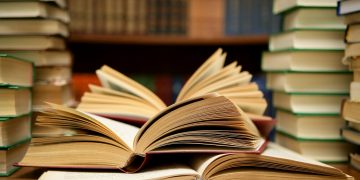For poet and homemaker Jayashree Das, writing is a way of life and expressing her emotions. Most of her poems revolve around love, longing, family life and social issues. Besides, many of her poems centre on women and highlight their role in society. Jayashree who has more than 10 books to her credit, has also been felicitated by several organisations from and outside the state. Jayashree spoke to Orissa POST on her journey as a poet.
Jayahsree comes from a family of poets. Her late father, Chintamani Behera, was a famous poet and the winner of the prestigious Kendra Sahitya Akademi award. Jayshree too had a flair for writing since an early age. “I was also good in Odia and secured a bachelor’s degree with honours in Odia. I got a chance to write for my college magazine when I discovered the poet in me,” she says.
Her first poem Parichay was appreciated by both the editor and the readers, which gave her confidence a boost. “My next two poems Samaroha and Pratikshya found a place in the magazine Jhankar. Gradually, I started taking writing seriously. My father used to edit my poems. I continued writing even after my marriage and my first book Pritifalgu, a compilation of 73 poems, was published in 1999,” says the poet.
Jayashree says that marriage opened up a whole new world to her. “A woman’s life changes after marriage. I got exposed to the new aspects of life. This gave me a new feeling and I started getting newer ideas. I started putting together those ideas and feelings in the form of poems and in 2001 came up with my next book Chhaya Chandrika,” she says.
Gradually, Jayashree started experimenting. And this time she tried her hands at writing short stories. Soon she came up with her first book of short stories, Jasoda. Her works were already making a noise and Jayashree was fast gaining popularity as an author and poet. “I was also managing a kid and looking after my in-laws. This kept me occupied throughout the day. So, writing poems became a way of making myself understand that there’s also a life beyond family for every woman. And for that she need not necessarily have to always step out of her house,” says Jayashree, whose next book Sabu Thai Bi Khojibaku Hue hit the stands in 2008. The book was a compilation of poems and short stories on social issues, mythology, and a variety of other subjects.
However, it was Tu Mo Mana Para, a compilation of poems that came out in 2014, finally made her a name to reckon with in Odisha’s literary circuit. Next year, a Hindi translation of the book tiled Ai Mere Man Ki Kabutar was published, while an English version, Pigeon of My Heart, came out in 2018.
Today, Jayashree is one of the most popular poets in the state and has been felicitated by a number of organisations. “I was given the Manaswini Pratibha Samman by a Paradeep-based organisation after the release of my first book,” says Jayshree. Following that, she has won several awards such as Akshya Samman, Sahitya Gourab Samman, Smrutilipi Samman, Utkal Bhasa Gourab Samman and Narishree Samman among others.
“I have been writing since 1999 and will continue to do so till the end of my life. I always try to give a message to society through my poems and short stories. Most of my poems revolve around women because still so much violence against women exists in our country. Even in the 21st century they don’t have the right to lead an independent life. Besides, I believe in love and peace. I am influenced by the philosophy of Mirabai, who was a symbol of love and peace and at the same time believe that every woman should be like Laxmibai. They should not stop fighting for their rights,” she says.
BRATATI BARAL, OP






































